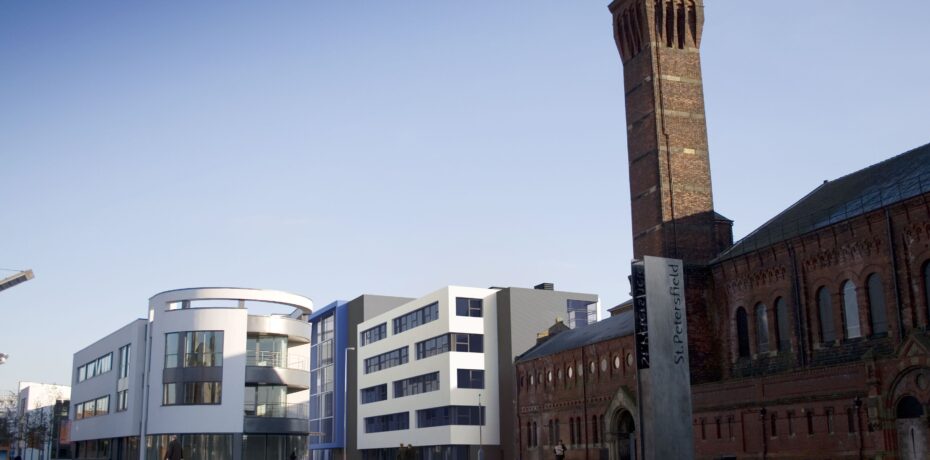Jayne Dowle’s Focus On: Ashton-under-Lyne
It is Saturday morning on Stamford Street in Ashton-under-Lyne. On the corner, two young Polish men are having an argument. It's not hard to drop back in time and imagine that they are workers drawn to Ashton-under-Lyne by the canals, cotton mills and collieries which thrived here in the 19th century.
The proliferation of cheap furniture shops and "To Let" signs on the terraced houses indicate that there is still a transitory population. Ashton-under-Lyne has strong roots though. There has been a settlement here since before the Norman Conquest. The market was granted its royal charter in 1284 and Ashton-under-Lyne soon became an established market town for the surrounding wool and farming communities.
It was transformed with the coming of the canals at the start of the Industrial Revolution, and became the junction of three: the Manchester and Ashton Canal, the Huddersfield Narrow Canal and the Peak Forest Canal. Local coal-mines supplied the burgeoning factories springing up around Manchester. In 1845, when the Sheffield-Manchester railway line opened, Ashton-under-Lyne became the centre of a Pennine transport network.
There is still something of the frontier town about Stamford Street, which forms the backbone to the "Old Town". Here are handsome Victorian buildings and an array of specialist retail outlets, including a bathroom shop, a shop devoted to expensive ornaments, and a wedding cake shop, which bears the proud legend, "W.M. Walton & Sons, est. 1832". Somewhere else, this might have become a chic little enclave. It's got the cafes and outdoor tables. But there is an edgy feel; drinkers spill outside the pubs and lads in baseball caps loiter outside the bookies. It has potential, you might say.
"Old Town has evolved over a period of time, it is not something that has been created," says Frank Travis, economic initiatives manager for Tameside council. "The challenge is to create links with the rest of the town centre. Many of the shops in Old Town are long-established businesses which are turning to internet trading to extend their trade and give them an alternative source of income." Travis cites Room 14, a men's clothing shop and upmarket Evergreen, a florist which sells "flowers with bits of twigs in", as leading examples of this trend.
Across the street, another legend is proclaimed: "Hudson Bay – Ashton's Most Exclusive Nightclub". It is boarded up. As is Club Denial. In nearby Old Street the "Humane Friendly Collecting Society", lately Boogie Wonderland, is up for renovation. Travis explains that the evening economy took a nosedive several years ago, following a spate of shootings and stabbings. The crowd has moved on to Stalybridge and Manchester.
If Ashton-under-Lyne's heyday as an entertainment hub has passed, its position as a shopping and retail destination has become a major selling point. It has been designated by Tameside council as the sub-regional shopping centre, above Hyde, Denton, Droylsden and Stalybridge. For a town with a population of only 43,236, seven miles from central Manchester, the range of retail is already impressive and is set to improve, if prevailing economic conditions don't send plans into reverse.
The Ladysmith Centre and the Arcades offer a comprehensive range of shops, including a substantial New Look and Next. Outline planning permission was granted in 2006 for a £40m expansion for the Arcades, which will include the town's first department store and a new transport interchange, intended for the proposed Metrolink tram extension from central Manchester to Ashton-under-Lyne. It was scheduled for completion by 2009, but building is yet to start.
Ashton-under-Lyne is famous both for having the first town-centre Ikea in the UK, which opened in 2006, and for its Victorian market hall. The market was destroyed by fire in 2004, and is being rebuilt, to open at the end of this year. With commendable speed and efficiency, a temporary home, the Phoenix Market Hall, was erected on a nearby car-park.
Barry Gleave, who has worked on his family's sweets and cakes stall since 1950 is looking forward to his new pitch, but has reservations about long-term prospects for the market. "It's all the supermarket nowadays," he says. "How many people do you know who buy everything in a market like they used to do? And of course we are all worried about increases in rents, rates and service charges."
In its favour, the market is right in the heart of town, and there seems to be no shortage of shoppers, on a Saturday at least. For Travis, the key to long-term sustainability lies in more people actually living in the town centre, using the shops and encouraging economic activity after 6pm.
He says that 364 residential units have been built or have been granted planning permission over the past three or four years, but cautions: "With the current financial climate, my worry is that the rate of development will slow, and people just won't be able to afford to move in."
In spite of the high-street action, incomes are amongst the lowest in the North West – according to the Office of National Statistics, Tameside has the lowest weekly wages in Greater Manchester, at £347.60 (2005). And there are plenty of houses in Ashton-under-Lyne for less than £100,000.
To raise prosperity levels, the council and its development partners are encouraging knowledge-based businesses, reflected in the largest mixed-use scheme in the town centre – Ask Development's project at St Petersfield. This aims to deliver a new business quarter, plus shops, leisure and apartments in an ambitious 400,000 sq ft, £42m development, £14m of which came from the public sector.
Ashton-under-Lyne's geography underpins the scheme. "St Petersfield, situated just outside the M60 and ten minutes' train journey from Manchester city centre, offers well-designed, high-quality office accommodation with fantastic public realm in an easily accessible location," says John Hughes, development director at Ask Developments.
Occupiers so far include Pennine Healthcare NHS Trust, Glossop PCT, the Shaw Trust, a charity which finds employment for disabled people, and TNG, a training company. A "Knowledge Mill" will provide 113 units for companies in a business creation unit. Hughes says that the goal is to encourage new and existing companies to remain in Ashton-under-Lyne rather than relocate, and to make the town a centre for innovation and entrepreneurs.
As it was in the past, so it could be in the future. It is telling that a retail and business park now occupies the site of Ashton Moss, once the deepest coal mine in the world. The spirit of trade and industry that has long-characterised this town lives on. Ashton-under-Lyne has been through the mill before – and seems better equipped than most to survive tough times again.





Liked this pitted history of Ashton & never K re Ashton Moss was the deepest coal mine in the world.As it is near to the Snipe retail park I think it could have actually been called the Snipe colliery,though it is on the opposite side of the A635 (Manchester Rd) Was very interesting to see wage figures..I always knew we were the poor relatives of The Greater Manchester conurbation !!!) It would be great if someone could update the info as & when verified. I would also be interested in establishing if Walton’s from 1832 es 1 of the first shops in Ashton It was there before the market avenue if 1845/1847 ?! I spoke to the current owner of Walton’s shop & she understand is at least great great-grandchildren daughter if not an extra great ? She did advise the shop had been a pub .Would anyone know what that was called ore 1832 please ?
By Brenda Hibbert